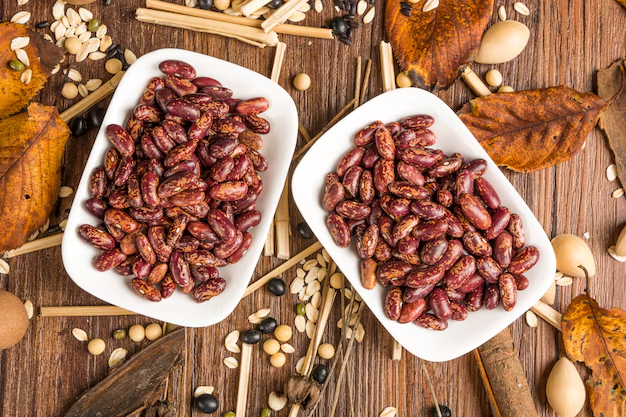Storing Beans in the Refrigerator: How Long Do They Last and How to Maximize Freshness?
Have you ever opened your refrigerator only to find that your delicious homemade beans have turned into an unappetizing mush? Understanding how long beans last in the refrigerator and the best practices for storing them can save you time, money, and prevent waste. Fresh beans are a staple in many nutritious and hearty meals, so keeping them in top condition is essential. In this guide, we explore everything you need to know about storing beans in the refrigerator to ensure they remain tasty and safe to eat.
🥄 How Long Do Beans Last in the Refrigerator?
Beans, like many other perishable foods, have a limited shelf life once cooked. While canned and dried beans have extended shelf lives, cooked beans offer a narrower window of freshness.
Cooked Beans
Typically, cooked beans last about 3 to 5 days in the refrigerator. Factors such as the type of beans, how they were cooked, and how they are stored can affect their longevity.
- Chilled quickly: Place cooked beans in the refrigerator within two hours after cooking to limit bacteria growth.
- Stored in airtight containers: Minimize exposure to air to extend their shelf life.
Canned Beans
Canned beans, once opened and not fully used, can last for around 3 to 4 days in the refrigerator. It is important to transfer them into a clean, airtight container, as storing them in the can could lead to a metallic taste.
Key Takeaway: Freshness Timelines for Beans
- Cooked beans: 3 to 5 days in the fridge
- Opened canned beans: 3 to 4 days in airtight storage
🥫 Bean Storage Tips to Maximize Freshness
Storing beans properly in the refrigerator requires attention to detail. Here are some practical tips to help your beans stay fresh longer:
Use Appropriate Containers
- Airtight containers: Prevent air and moisture from spoiling the food quickly.
- Glass jars with tight-fitting lids: Ensure a strong barrier compared to plastic containers.
Temperature Matters
- Keep your refrigerator temperature at or below 40°F (4°C), which is crucial for slowing down bacterial growth.
Cool Before Storing
Always allow cooked beans to cool at room temperature before refrigerating. However, do not leave them out beyond two hours to meet food safety guidelines.
Avoid Cross-Contamination
Store beans away from raw meats, seafood, and eggs to prevent bacteria transfer, which could cause the beans to spoil faster.
Label and Date
Label: Each container with the type of bean and date stored, aiding in rotation and usage priority.
🌿 Factors Affecting Beans' Shelf Life
While generally there is a standard timeframe for how long beans last fresh, certain factors can extend or reduce this period.
Type of Bean
Different beans like black beans, lentils, or chickpeas may have variations in shelf life, largely due to their unique moisture content when cooked.
Cooking Methods
Beans cooked with more water or broth may have a shorter freshness duration compared to those cooked to a firmer texture.
Additives and Seasonings
Salty and acidic additives like vinegar or tomato-based sauces can impact the longevity of cooked beans. The acids can preserve some qualities while accelerating spoilage if left in too much moisture.
🕒 Identifying Spoiled Beans
Detecting spoilage early is key to maintaining kitchen safety and enjoying healthy meals. Here are some visible signs and changes to look out for:
Visual Changes
- Mold growth: If beans show any discoloration or fuzzy patches, discard them immediately.
Odor
- Sour smell: Fresh beans have a mild aroma, while spoiled beans may emit an off-putting sour odor.
Texture
- Slimy surface: Beans should remain firm. A slimy or mushy texture is an indication of spoilage.
Key Tip: When in doubt, throw it out! Consuming spoiled beans can lead to foodborne illnesses.
🍽️ Related Topics: Bean Safety and Usage Tips
Let’s delve into some associated aspects that will add depth and practical value to your understanding of storing beans.
Freezing Beans
For those looking to extend the life of cooked beans beyond refrigeration, freezing is an excellent option.
- Pre-freeze: Lay beans out on a baking sheet before bagging them. This prevents them from clumping together.
- Freezer storage duration: Up to 6 months, ensuring a consistent supply for soups, stews, and salads.
Meal Prep and Portioning
- Consider portioning cooked beans into daily-use amounts. This minimizes repeated exposure to air and heat, preserving their quality.
Understanding Dried Beans
Dried beans, stored in a cool, dry place, can last for years. While they require longer cooking times, they offer flexibility and affordability.
📋 Quick Reference Summary
Here's a visually distinct summary to keep handy:
| Bean Type | Refrigerator Shelf Life | Storage Tips |
|---|---|---|
| Cooked Beans | 3 to 5 days | Airtight containers, chill before storing |
| Opened Canned Beans | 3 to 4 days | Transfer from can to an airtight container |
| Frozen Beans | Up to 6 months | Pre-freeze on a baking sheet for easy use |
🌟 Final Insight
Beans are not only nutritious but versatile and economical. By understanding their proper storage, you can maintain their quality and maximize their use in your kitchen. Keep in mind the practical tips outlined in this guide, as they will help you avoid spoilage and enjoy delicious meals throughout the week. Always prioritize food safety, and if you're ever unsure about the freshness of your beans, it's wiser to err on the side of caution. Happy cooking!

